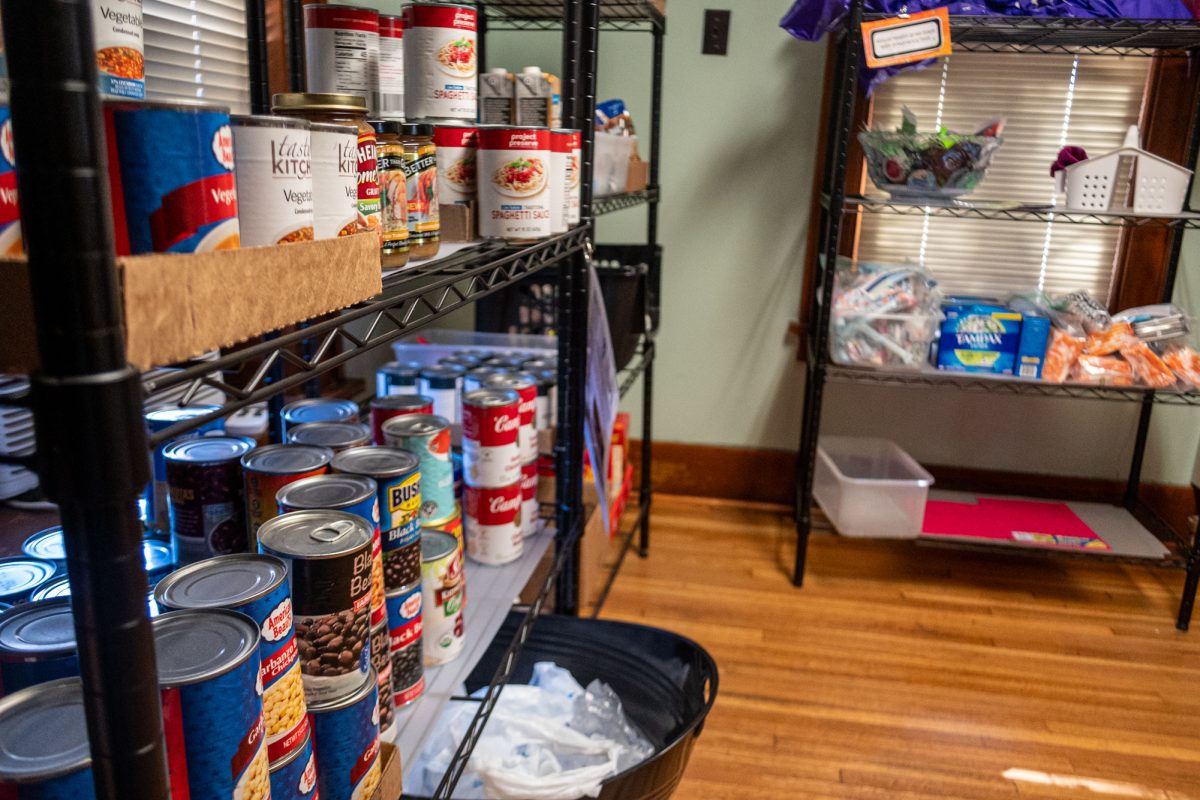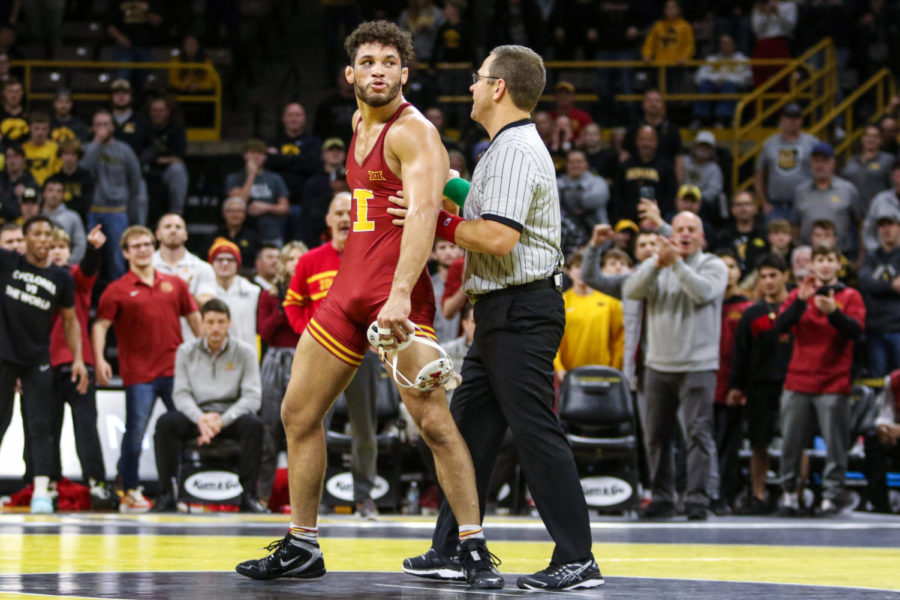What you can do to stop domestic violence
December 2, 1998
Last week a friend and I went shopping, and while standing around laughing at some really ugly shoes, I saw a man swearing at a woman and physically pulling her out of the store.
She tried to break free and was finally allowed to walk on her own. The insults from this man kept coming.
She kept on going. I started crying. I was helpless in this situation, and all I could do is imagine the fate that this woman was about to face.
I was scared for her and me.
I wanted to run and stop him and take her away, but I couldn’t.
Domestic violence is something that can no longer be ignored. We need to do more.
In fact, in Iowa, there are seven times as many animal shelters as there are battered women’s shelters.
This is not proportional when you think about the fact that in this country, a woman is physically assaulted in her home every nine seconds.
Domestic violence is believed to be the most common and least reported crime in our nation.
In fact, domestic violence causes more injuries to women than muggings, car accidents and stranger-rapes combined.
According to the Iowa Coalition Against Domestic Violence (ICADV), last year between 20,000 and 44,000 Iowa women suffered abuse in their home.
Domestic violence affects everyone — ICSDV reports that two-thirds of all marriages will experience domestic violence at least once.
Domestic violence isn’t just happening in marriages. The National Resource Center on Domestic Violence found while studying dating relationships that when women tell their friends that they are being hurt by their boyfriends, their friends tell them that they are lucky to have boyfriends.
Women aren’t the only people in relationships who get battered. According to the Stop Abuse For Everyone Home page, there is one abused male for every 13 abused women.
As you can see, domestic violence affects us all.
It can happen in any relationship, to anyone, at any age.
The upcoming holiday season is going to be very hard for victims of domestic violence and their families.
There is a lot that we can do to make this time easier for them and to help them with the problems that they will be facing throughout the year.
No one expects you to go on a personal crusade, but two people can do more than one and three can do more than two.
Try doing some of these things to help a battered friend.
Make violence unacceptable in your life.
Post hotline numbers.
Challenge sexist, racist and homophobic jokes and behaviors.
Be informed.
Knowledge is half the battle.
Tell your friend what you have learned and help him or her to gather information.
Listen to the person.
Let your friend know that you care and you are there to listen.
Don’t force him or her to talk.
Never blame your friend for what is happening or underestimate her fear.
Let your friend make her own decisions, and support the decisions that your friend makes.
Don’t judge. He already gets enough of that.
Focus on your friend’s strengths.
With physical abuse comes emotional abuse.
The victim may start to believe that he deserves the abuse.
Don’t just say you care. Help your friend with transportation or child care.
Confront your friend with the danger.
Explain to your friend that this is not normal and that something does need to be done because you want her to be safe.
Help develop a safety plan.
You could have code words or signals so you know when help is needed.
Store some of your friend’s things that he or she would need if they left.
Volunteer your time at local shelters.
Even if you don’t feel comfortable talking with the survivors of abuse, you can help with paper work, answer phones or run errands.
Please remember that domestic violence is a problem for all of us and don’t let opportunities to help pass by this holiday season.
If you have any questions or concerns about domestic violence, please call ACCESS’ (Assault Care Center Extending Shelter and Support) free 24-hour, confidential hotline at 232-2303 or the State-wide Domestic Abuse hotline at 1-800-942-0333.
Think about the things that have happened to these innocent people, and be angry.
Without action, things will just keep getting worse.
Sara Junck
Sophomore
Family services






